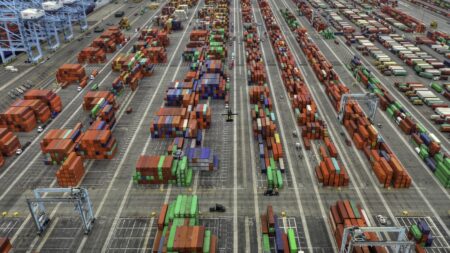
Diversity isn’t optional; it’s essential for logistics to thrive globally
Why inclusive workplaces mean good business
Diversity and inclusion (D&I) at workplaces is fast becoming a defining factor in building businesses that are more resilient, innovative, and competitive. Numerous studies—including those by Boston Consulting Group and McKinsey—affirm that companies ranking high on D&I parameters, particularly in leadership roles, report up to 19 percent higher innovation revenues and are 25 percent more likely to achieve above-average profitability.
Logistics has traditionally remained a male-dominated industry due to physical demands, safety concerns, and limited access for women. Where employed, women are often confined to sorting and packaging roles or limited to HR and administration in office settings. As India’s logistics sector accelerates toward a projected valuation of $380 billion by 2025, women still account for a mere 20 percent of the workforce—a figure that must rise to truly realise the sector’s potential.
What D&I means
‘Diversity’ refers to the spectrum of human differences—spanning gender, age, ethnicity, socio-economic background, abilities, and more. ‘Inclusion’ goes a step further: it ensures that individuals from diverse backgrounds feel respected, empowered, and provided equal access to opportunities. For meaningful impact, inclusion must span across workplace policies, systems, physical environments, and even product and service design.
Why it matters
Diverse and inclusive teams—especially in sectors like logistics—foster better innovation, higher employee satisfaction, and closer alignment with customer needs. The ripple effect includes lower attrition, a wider talent base, and long-term competitive advantage.
- Better decisions
The McKinsey report reveals that diverse leadership teams are more adept at bold, forward-looking decision-making. In logistics, where risk mitigation and quick shifts are critical, such agility is a business enabler. - Greater resilience
Inclusive teams with multifaceted experiences bring creativity and adaptability—especially valuable during crises such as supply chain disruptions, policy shifts, or economic uncertainties. Different perspectives across functions—from warehousing to last-mile delivery—fuel better outcomes. - Larger talent pool
A strong D&I culture helps businesses recruit from varied ethnic and socio-economic pools. Not only does this enhance capabilities, but it also reduces recruitment cycles and lowers training costs, leading to long-term operational stability. - Deeper customer understanding
As logistics companies scale and serve an increasingly global and diverse clientele, inclusive teams naturally mirror the diversity of customers. This enhances the company’s ability to tailor offerings, understand market nuances, and deliver exceptional service—creating trust, repeat business, and brand loyalty.
D&I: A strategic imperative
D&I at workplaces in the logistics sector can no longer be ignored, given the clear benefits it brings to business and revenue growth. Implementation of such policies and practices through industry-level and company-level interventions is imperative in order to navigate global uncertainties and supply chain disruptions caused by geopolitical tensions and increasingly protective economic policies of countries.
D&I is not just the right thing to do; it’s the smart thing to do.











